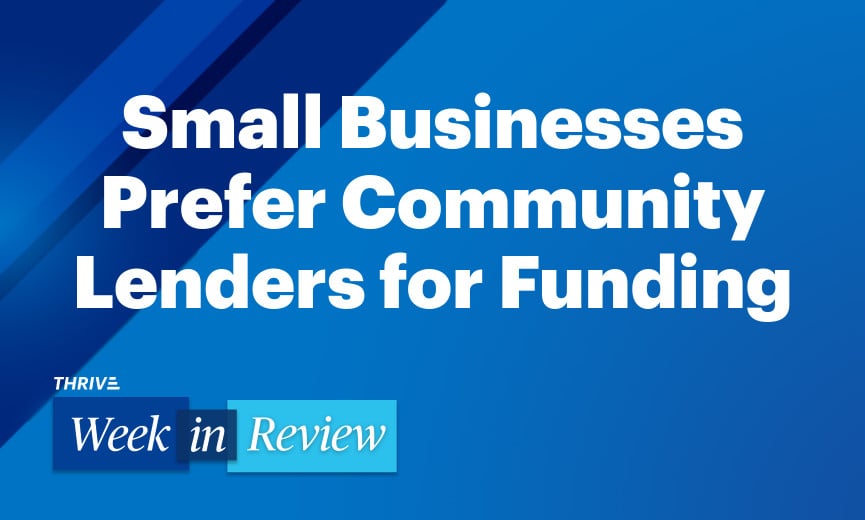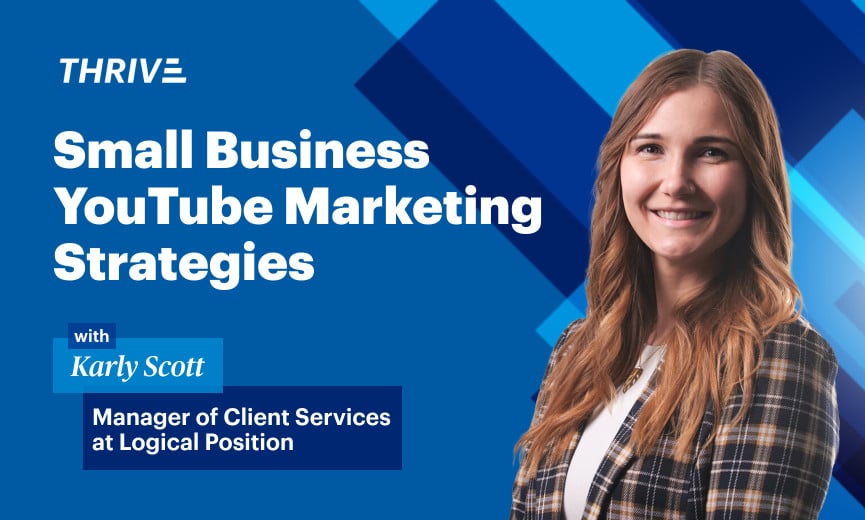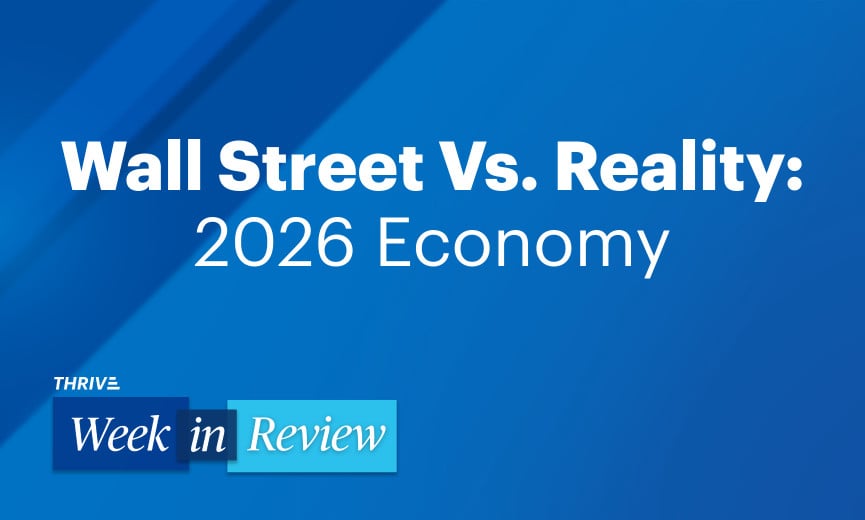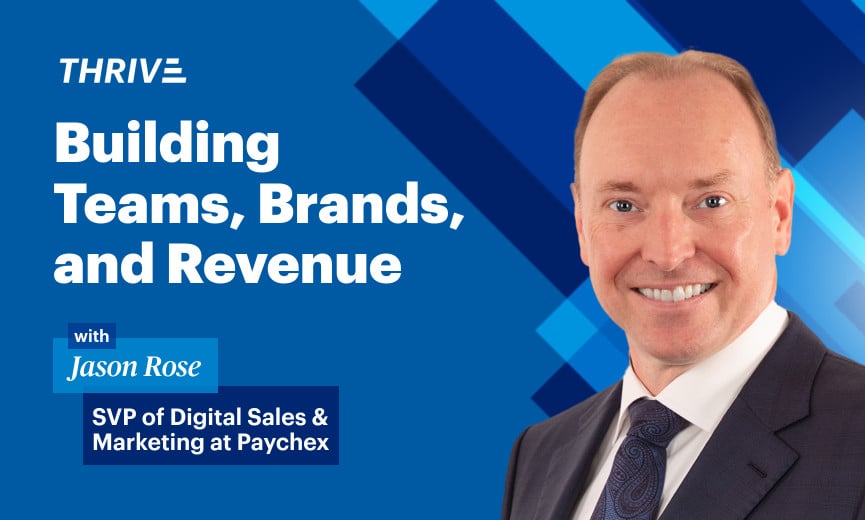- Thrive
-
Temporada
4Episodio135
Norma del contratista independiente, Lender Match de la SBA y transición del patrimonio de la generación de la posguerra

Podcast •

Resumen
The independent contractor final rule could create some issues for businesses trying to classify their workers correctly, especially if they now have to make their 1099s into employees who are eligible for federal wage and hour protections and benefits. Gene Marks comments on what this could mean if challenged. He does like the SBA’s approach with the new Lender Match tool, not to mention the trillions of dollars in funds that Millennials could see during a generational wealth transition from the baby boomers. Listen to the podcast for more details.
Ver transcripción
[Gene Marks, host]
Hey, everybody Gene Marts and thanks for joining me again this week for another episode of the Paychex THRIVE Week in Review podcast. This is the podcast where we take a few items of the news that impacts your business, and we talk a little bit about it.
Before we get started, are you ready to stay ahead of your game? If you dive into our Paychex THRIVE Newsletter – the go-to resource for business news, you can get articles, compliance updates, engaging podcasts like this one, and webinars. We've got your back when it comes to your business, so don't miss out. Join our THRIVE community by heading over to paychex.com/thrive. That's why P-A-Y-C-H-E-X dot-com forward slash thrive.
All right, guys, let's get to the news that's impacting your business this week. The first story comes from Bloomberg Law. It is about gig workers and independent contractors. On March 11 this past week, a new rule from the Department of Labor is becoming effective. According to the story – and we've talked about this before, right? – the gig worker rule, the worker classification rule. It was proposed a while ago. It was up for comment, then got finalized. This is the week where it becomes effective.
However, congressional Republicans in both the Senate and the House are introducing legislation to block the Department of Labor worker classification rule, which would make it more difficult – this is the rule – for companies to label workers as independent contractors. Sen. Bill Cassidy, a Republican from Louisiana, and Kevin Reilly, a Republican from California, introduced the Congressional Review Act resolution to overturn the Department of Labor's independent contractor rule.
Cassidy is the top Republican on the Senate Health, Education, Labor, and Pensions Committee, while Reilly heads the House Education and Workforce Subcommittee on Workforce Protections.
The new rule, we know, is going to make it harder for companies to classify workers as independent contractors who aren't eligible to the same benefits or protections that are awarded to employees under the federal wage and hour law. It's been under fire by many in the business community, particularly app-based companies like Uber and Lyft. Republicans and business leaders say the regulation will deal a blow to the gig economy and restrict flexibility for workers who enjoy being in business for themselves. Several lawsuits have been filed against the rule alleging that the regulation is too broad and goes beyond the scope of the DOL’s authority.
So, what does this mean for you? Well, for starters, this rule is still becoming effective. So, if you have independent contractors in your business, 1099s, you really need to look at the specifics of the rule and focus on this: Are those independent contractors integral to your business? Are they contributing revenue to your business? Are you billing them out to customers? Are they performing a role that you really need in order to deliver services and products to your customers? If that is the case, yeah, the Department of Labor's new rule is basically saying that you should probably be classifying them as employees and giving them workers benefits and taxes, paying their taxes and other things related to employees.
So, you need to talk about that with your labor attorney or your payroll specialist to see if you are classifying your workers right. Now, in the meantime, maybe this bill gets through. So, there's you know, it can get subject to congressional review. Maybe some of these other lawsuits prevail. Who knows with the elections will happen in November of this year that could actually stay or overturn this rule.
But as business owners, we have to be operating as if this rule is reality, because it is, and you need to be making sure that you're evaluating your independent contractors and that you're classifying them the right way. But keep in the back of your mind that things could change.
The next bit of news comes from the Small Business Administration. Last week, administration leader Isabel Guzman announced the next generation of their Lender Match tool for small businesses, which connects capital through SBA's network of approved banks and private lenders. The enhanced lender match will provide Americans seeking funding to start and grow their businesses with a simple online tool that will more effectively match them with SBA's competitive lending products and additional offerings from a trusted network of banks and private lenders.
Now, on the platform, small-business owners will benefit from an improved like mobile interface that ensures better access and usability. Borrowers will now be able to easily view all of their match lenders in one place, allowing the borrower to find and compare lenders to help them decide where they want to apply for a loan. The enhanced tool also will verify borrowers and screen for fraud to streamline the process for both lenders and borrowers. And importantly, small businesses that are not matched to lenders will be connected to the SBA's local network of free advisers to help them get capital-ready.
This is really a great thing. I wrote recently in The Hill about my admiration – it was a bit of a love fest I have for Administrator Guzman. I think she's doing a fantastic job, although there are still some challenges for the SBA. But listen, in this high-interest rate environment, I have a lot of clients that are turning to SBA-backed loans. Remember, the SBA doesn’t issue loans; they guarantee the loans up to like 80 or 90% with specific banks.
So, go to the Lender Match platform on SBA dot gov and that way you will have it much easier getting matched with a specific bank, give you more options both for you and the banker. Move that capital application ahead faster and again, you know it will enable you to get loans that you might not normally be able to get if you are just dealing directly with the banks and not through the SBA.
So, this Lender Match tool is definitely something you should be looking into. And if you are looking for financing this year in this high-interest rate environment, I strongly recommend that you use this Lender Match tool and get an SBA-backed loan from an SBA member bank. The process will be that much easier and you will have an increased chance of getting that loan if you go that way.
Finally, there's an article in Yahoo Finance about boomers. I'm not one yet. I missed it by about a year, but I guess you can consider me to be one, okay. Boomers are expecting to pass $90 trillion in assets to Millennials, leaving them to become the richest generation in history. In an unprecedented financial shift, according to the Yahoo article, Millennials are on the cusp of becoming the richest generation in history, with $90 trillion expected to be passed down to them over the next two decades.
This transfer of wealth, highlighted in Knight Frank's 2024 wealth report, promises to shape the economic landscape and alter the current power dynamics heavily influenced right now by the Baby Boom generation. The report forecasts a seismic change in the distribution of wealth, with Millennials positioned to inherit assets that will significantly elevate their financial standing. This generational wealth transfer is not merely a redistribution of existing wealth, but signals a broader transformation in the avenues for wealth creation.
So, here's my message for both the boomer generation and the Millennial generation. Number one, for you fellow boomers, right, as we're getting older, we are looking more toward succession planning and moving our assets on. A great resource to sell to your employees, by the way, ESOPs have been growing substantially. But, you know, there is a market out there – and it's a big one – for people looking to buy your business, and it is growing every year. So, consider that alternative.
If you're a Millennial and, you know, by the way, you Millennials are getting old and you're like approaching 40 on the higher end. If you're a Millennial, that also means that you've been in business for a little bit, and I know you're getting itchy to start your own business, and I think that's great. But before you start something from scratch and recreate something out of nothing, why are you why are you regenerating the wheel? Consider buying an existing business.
You know, the boomers are getting older. We're looking for exits. We want to transition, move on to retirement. That's what this generation of wealth transfer is, is all about. We want to transfer wealth down to you – well, we want to sell our wealth to you – but it's an opportunity. So, if you're looking to start up a business, good for you, but before starting up a business, look to that boomer generation and consider buying an existing business and then turning it into your own business. At least it gets you a way big head start rather than starting everything from scratch.
You have been listening to me speaking on the Paychex THRIVE Week in Review podcast. And just a reminder to you, if you want insightful articles, compliance updates, engaging podcasts and webinars, join us by subscribing to our THRIVE newsletter. Go to paychex.com/thrive. That's P-A-Y-C-H-E-X dot-com forward slash thrive.
My name is Gene Marks. Thanks for listening. I'll be back here next week with a few more items in the news that impact your business. Talk to you then.
This podcast is property of Paychex, Inc. 2024. All rights reserved.

 Apple Podcast
Apple Podcast Spotify
Spotify iHeartRadio
iHeartRadio








